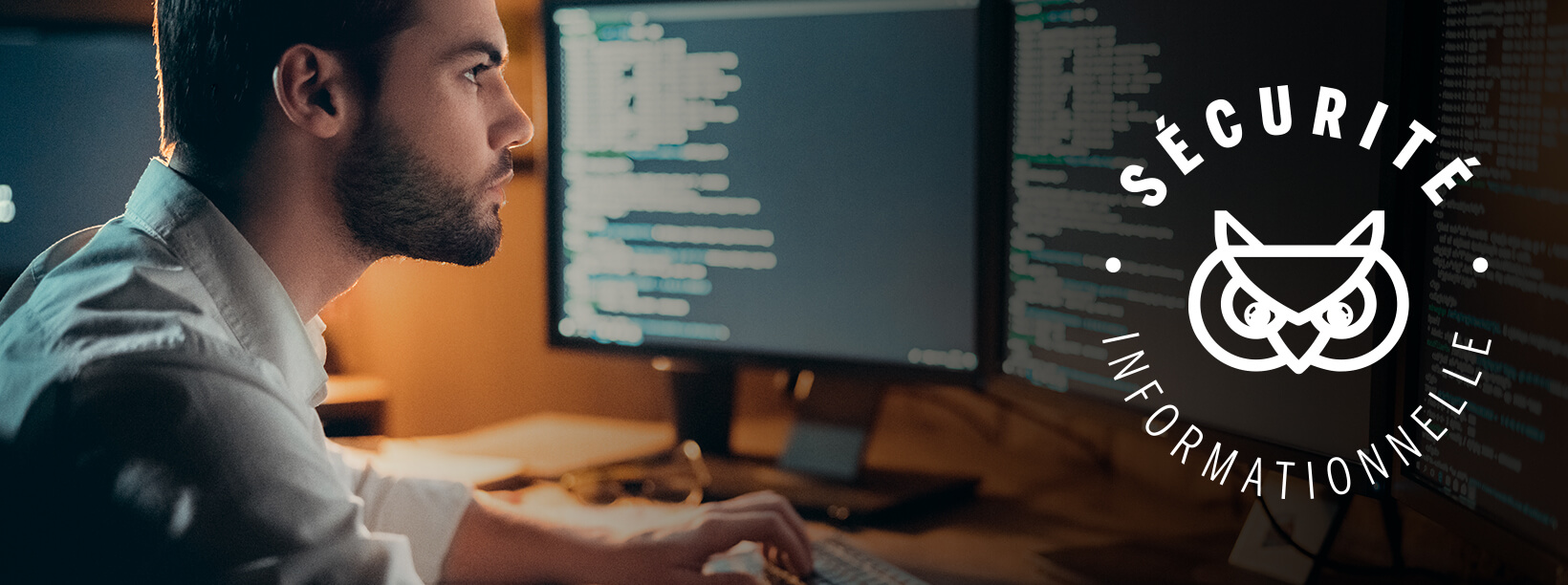Faraway, so close: the art of networking Version 20.21
In the business world of the "before" times, the preferred places to network were convention centres, lunches and happy hours, golf games, concerts and all manner of social events. Then everything went 100% digital during the pandemic… and with it came unexpected efficiencies.
According to a McKinsey study, the explosion in online sales since the pandemic began has been driven by both consumers and businesses; two-thirds of buyers (66%) think that digital interactions are more important than traditional sales, compared to only 48% last year. Now there’s no choice: networking and business development must be done via technology… and even those who were dragging their fingers have had to step up to the keyboard.
Amélie Dugas-Sampara and Youssef Lemgendez know all about it. As Investment Managers at the Fonds de solidarité FTQ, they were constantly on the move, building relationships with players in their respective sectors, meeting with entrepreneurs looking for financing, and looking after their investments by sitting on Boards of Directors, for example. But when they were forced to go 100% virtual, they discovered some unexpected benefits… and they’ll continue to capitalize on these in the future, coronavirus or not.
Their key findings include:
1. Networking is more important than ever
It’s good timing that COVID-19 disrupted everything during this era of high-speed internet: all the tools were already in place to develop socially distanced business relationships. The only problem is that technology creates a more level playing field with competitors from around the world. Once we’re confined to our screens, we lose the advantage of physical proximity, kicking the competition up a notch.
"Québec entrepreneurs now have easier access to investors, whether they’re in Montreal, New York or London," said Youssef. "Our proximity, adaptability, financial expertise and network of regional funds make our offer very specific, but that doesn’t exempt us from being competitive. We must always be at the right place at the right time. It’s even more important to highlight our unique strengths compared to our competition."
Online networking tools might have been handy before, but now they’re the go-to medium.
"Everyone uses LinkedIn in our field, but we're also on the lookout for virtual events," said Amélie. "These range from big business conferences by the Chamber of Commerce of Metropolitan Montreal to more specialized sessions by sector, near and far, for example, in the life sciences, engineering or financial services."
2. LinkedIn cures shyness
The virtual world breaks down psychological as well as physical barriers because it’s less awkward to start a conversation on social media than in a convention centre.
"Even though I try to get a mutual contact to introduce me at events, I’m always apprehensive about that first contact," said Youssef. "Once I applied the same technique to LinkedIn, it became much easier."
Less distractions, aside from possible intrusions by children or pets, encourage participants to focus on the content of the discussions.
"With these platforms, you can choose who you want to talk to and dramatically reduce inefficiencies, such as travel, tardiness and even small talk," said Amélie. "In the end, I’ve created more contacts at events since they’ve gone virtual! I notice that people are definitely more available."
3. Our value lies in relevance
The web is full of advice on how to successfully participate in online meetings by using the ideal audiovisual configuration and winning behaviours (number one: smile). But when it comes to networking, the most important thing is to bring value to your contacts.
"Networking is not advertising. You can only stand out by giving people something that’s relevant to them," Youssef added.
In this pandemic year, he’s had time to refine his technique: learning about the interests of the individuals he wants to meet, posting content that might interest them and then gradually interacting with them, ideally through a common contact. At that point, he’s ready to offer them value.
"Building credibility is a long-term process. You have to educate yourself on industry issues and opportunities for the Fonds to make a real impact. By sharing relevant content on LinkedIn, targeted to the specific interests of the entrepreneur I want to meet, I'm more likely to get 30-45 minutes with them. You have to take the time to gain people's trust," said Youssef.
Amélie recommends paying attention to a person's activities and organizations, their concerns and ambitions. It’s okay to congratulate them on an accomplishment, for example, to create closeness and a "human touch" from the outset, she observed.
4. Efficiency is here to stay
In our experts’ experience, a virtual meeting can be arranged more quickly than a physical meeting, which might need to be scheduled several months in advance. And they like the fact that, with some platforms, you can chat privately with someone and then return to the plenary, or view participants' profiles and contact them later, plus other features that create more effective networking than ever before.
"In the digital environment, I’ve been able to set up 30-minute meetings with CEOs. Before, I might have only been able to meet them in large groups, often at noisy parties," added Amélie.
"We often hear that virtual interactions lack warmth, that there’s nothing better than face-to-face meetings, but I think that myth has been debunked," viewed Youssef. "I was at an event this morning and executives said that digital is a better way to personalize their offer and that's attractive to business customers these days."
So will we be sitting in front of our screens once COVID-19 is behind us? Amélie believes that a lot of networking will remain virtual: "I think our work will become hybrid. We'll still enjoy seeing each other in person because social interaction is a human need, but anything that can be done more efficiently by remote will remain virtual. We've proven our resilience and we’re more comfortable with the virtual. Plus, it's in the nature of entrepreneurs to maximize their time and energy."
"Face-to-face will not return 100%," Youssef opined. "We probably won’t attend large events with thousands of people, often far away, as much as we used to because the pandemic has encouraged us to develop our business relationships efficiently at a distance. However, there will always be a need to meet entrepreneurs in their work environment. Besides prospecting, an investor's job involves evaluating all aspects of the company applying for financing, and visiting offices or factories is part of that."
Pandemic or not, both agree that successful contact is just the beginning. Being attuned to the needs and interests of others leads to rewarding business relationships. And being attentive, easily accessible, structuring your notes so that you can find them at the right time, and sharing references from your contact network might sound like small things, but they add up to an immeasurable difference.

 By Amélie Dugas-Sampara
By Amélie Dugas-Sampara  and Youssef Lemgendez
and Youssef Lemgendez 
